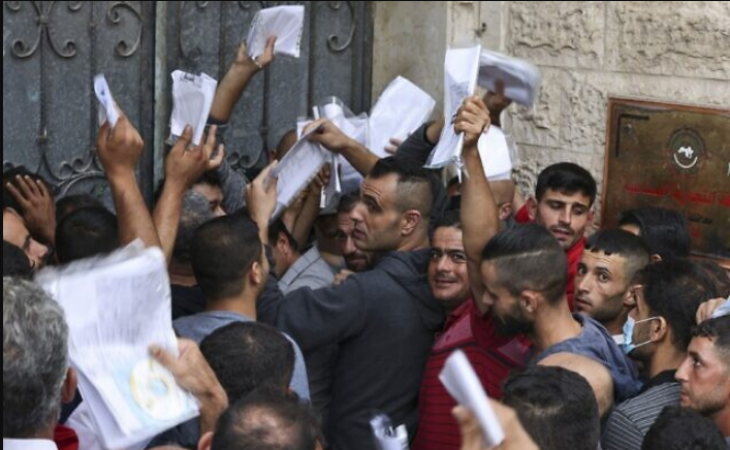
Gaza: Just days after a brief period of fighting ended last month, Gazaan was already returning to cross-border work under a permit scheme that uses economic inducements to help stabilize the volatile enclave. Is. It was launched as part of Israel's strategy
For those lucky enough to get a permit, a job in Israel could pay for up to ten times what they could earn at home, a powerful incentive in a poor region with 2.3 million people nestled in a narrow coastal strip. Has happened.
"I paid off my debt, renovated the house, and brought some of the things I needed," said Omar Abu Sidu, 31, who has been working at a car wash company in the southern Israeli city of Sedrot for the past six months.
According to the World Bank, Gaza's unemployment rate is around 50%, and more than half the population lives in poverty, exacerbated by repeated bouts of fighting and a year-long economic blockade imposed by both Israel and Egypt.
Permit applications are often confused between the offices run by the Islamic Hamas movement and the official Palestinian Authority, which lost control of Gaza in 2007 but works with the Israeli authorities on the issue.
Some workers also complain that permits do not provide them with many standard employment rights, such as pension and accident compensation insurance.
Although the Hamas-run labor ministry in Gaza reports that it has received 100,000 applications for permits since March, when it began participating in the application process, it had little effect on demand.
"It has made a big difference," said Abu Sidu, who arrived several hours early to return to Israel from the Erez crossing, where he earns 350-400 shekels ($102-$117) a day, compared to 40 shekels ($11.60) Earns Gaza
The permits were introduced last year as part of Israel's dual strategy of imposing military controls while providing some economic benefits to ease tensions after an 11-day war with Gaza-controlled Hamas.
uncertainty remains
In addition to the permits, which analysts estimate contribute about 7 million shekels ($2 million) per day to the Gazan economy, Israel has also promised to further ease economic sanctions subject to good behavior from Hamas.
Ehab al-Ghassain, a Hamas-appointed deputy of the labor ministry, said Israel's demand "will not affect our political positions." He was aware of the economic benefits to Gazans, but was wary of being forced to make concessions considering the Palestinians as the occupying power.
According to Israeli officials, the permit has forced Gaza's Hamas rulers to decide between maintaining their staunch opposition to Israel and providing Palestinians with opportunities to work in well-paying positions.
According to Moshe Tetro, commander of the Israeli military's coordination and liaison unit with Gaza, "the leadership in Gaza must make the decision." “Do they want civil and economic openness or mayhem and destruction? ,
According to Prime Minister Yair Lapid, the government may increase the number of permits from the current 15,000 to 20,000, which is up for re-election in November.
Any further escalation will depend on whether Hamas agrees to hand over the remains of Israeli soldiers who have gone missing and are believed to have been killed in Gaza.
Gazans living on the streets have been exposed as a result of Israel's sudden and unexpected border closures, as well as a complicated and difficult application process.
"I applied a year ago," said 33-year-old Hussain Nabhan, a father of six. Claiming that "we don't have connections," he said that "some people had applied a month or two ago and had received permits.
Separately, both Hamas and the Palestinian Authority deny the existence of any bribes or the influence of connections on permit-seeking decisions.
Even for those who successfully complete the process, there is still a lot of uncertainty, and although the benefits are appreciated, employees are constantly aware that they can be laid off at any time.
Last month, fighting between Israel and the militant Islamic Jihad faction was on a relatively small scale, and Hamas was not directly involved. But since Israel withdrew its troops from Gaza in 2005, there have been at least six armed conflicts, and people are constantly aware that anything can happen.
"We are concerned that if the situation worsens, we will not get the permit again and we will have to stop working. We are on constant alert," Abu Sidu said.
US senator disagrees with Israeli army report on journalist killed by Palestinians
Israel :Shireen Abu Aqleh was likely accidentally killed by a soldier
Israel's New Entry Rules for Foreigners into the Palestinian Territories Worry US Ambassador